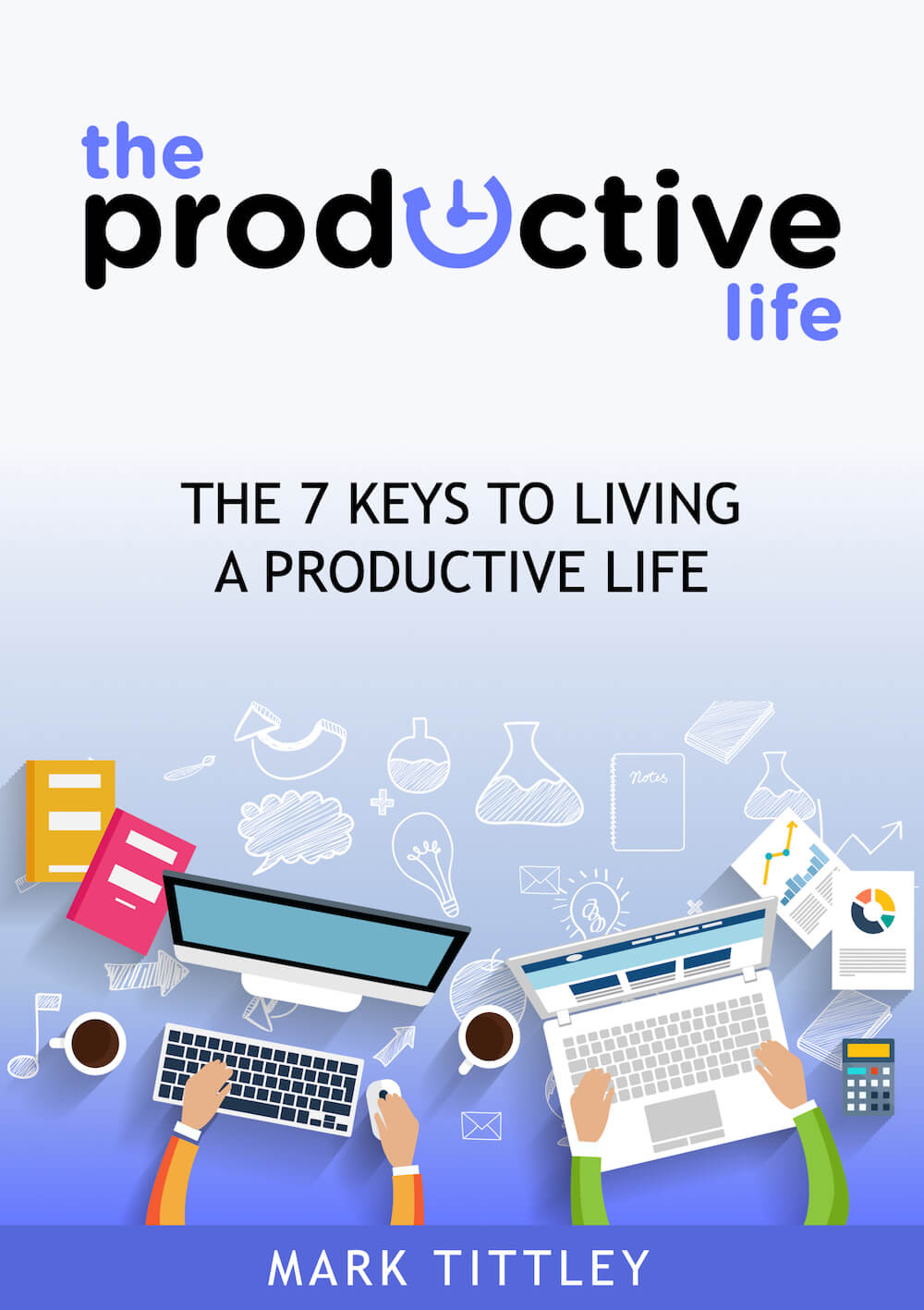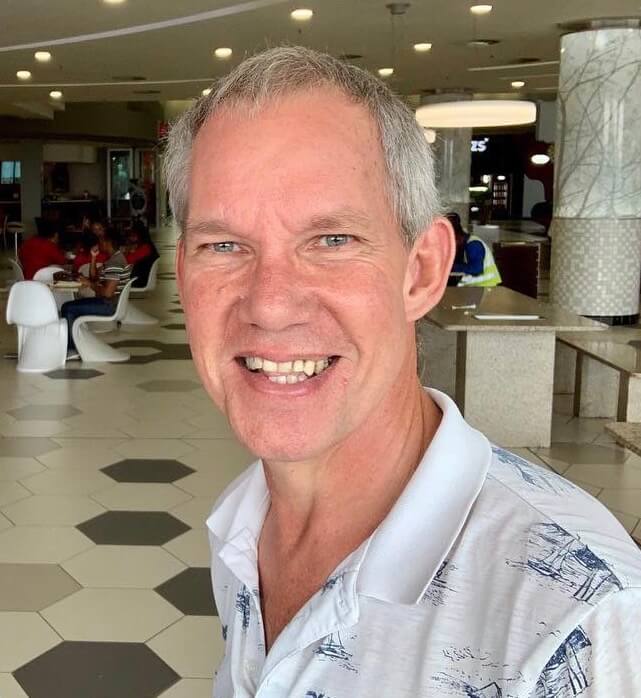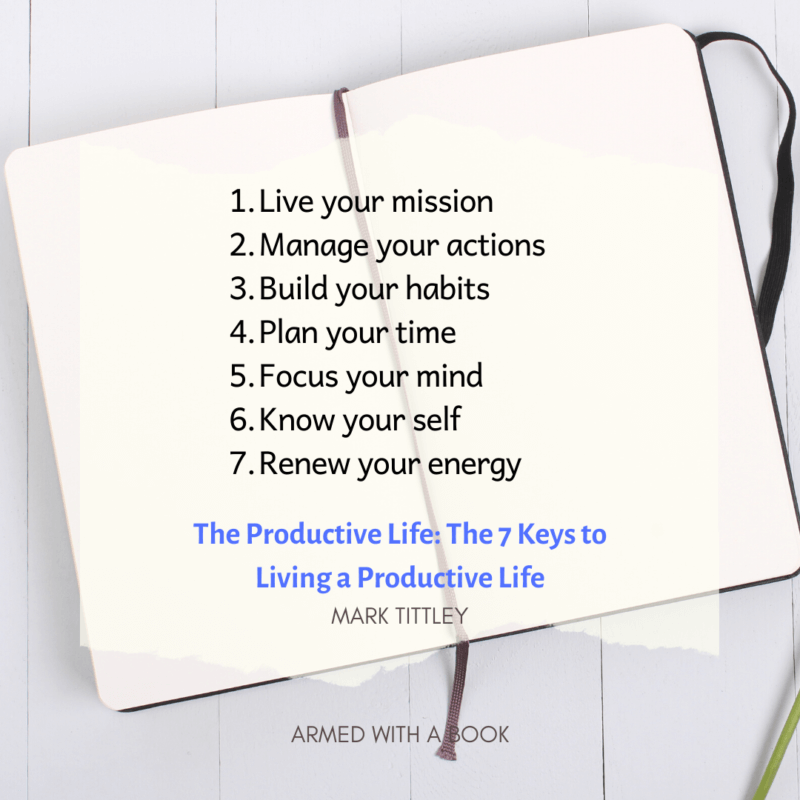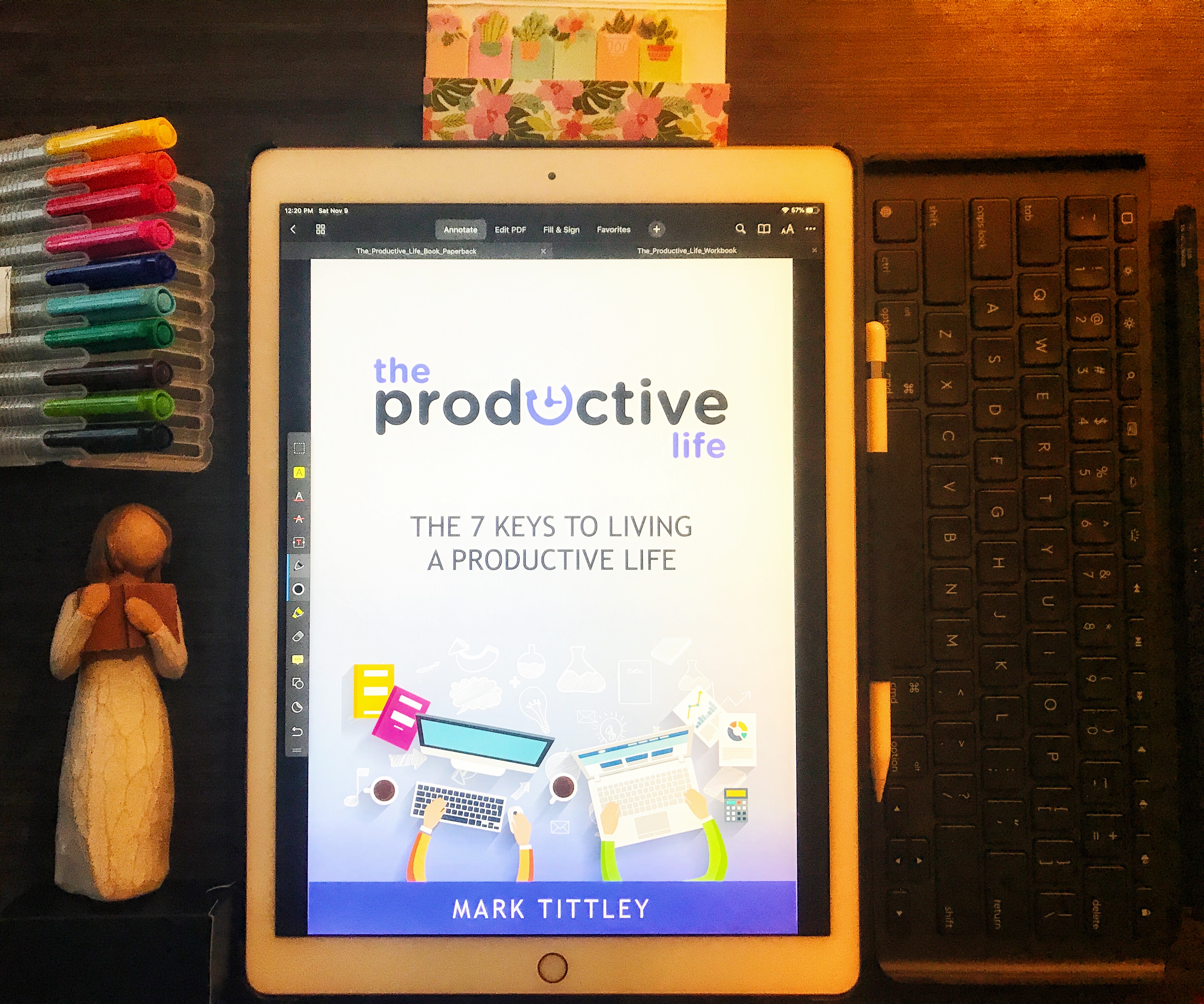

It is always a pleasure to meet another student of productivity. Looking back, I started considering myself a student of planning when I got my first bullet journal. It was going to be a creative outlet with goals. Since then, my bullet journal has gone through a number of iterations, from daily entries to now, once a month entries. I have also made it a point to read more about planning and productivity.
The Productive Life: The 7 Keys to Living a Productive Life By Mark Tittley came at the perfect time. I have already raved about the book here, and now it is time to talk to Mark himself. Mark is a pastor covering Youth and Leadership at Every Nation Rosebank Church in Johannesburg, South Africa. He is passionate about resourcing his family, friends and next generation leaders. He believes and follows the Getting Things Done approach to time and life management. The Productive Life: The 7 Keys to Living a Productive Life is his first book.
It was wonderful to connect with him! Enjoy the interview, and get some insights about the book, productivity, habits and more! 🙂
- The Productive life is an amalgamation of ideas from numerous books, providing ample information and recommendations in less than 100 pages. What led you to design this book this way?
One of my greatest strengths is the ability to draw from multiple sources and create something that works for me. Each time I stumble across a new area I tend to read everything I possible can that has been written on that subject until I get to a point where I see different threads coming together and I simplify things in a way that works for me and allows me to teach it to others. I also wanted to make sure that anyone already struggling with information overload would not be put off by a massive book. In all honesty, while the book is short in terms of page length it can actually take a lot longer to work through than a book double its size because of the practical exercises I have included to implement the keys to living a productive life.
- When did you become a student of productivity?
The moment I picked up a copy of Stephen Cover’s book, The 7 Habits of Highly Effective People, I was hooked on productivity! Since then I have made it my aim to read everything I possibly can about productivity and continually strive to improve the way I manage my whole life. One of my Strengths Finder signature themes is Learner and that is probably what feeds my insatiable appetite for learning and growth in this area.
- As you were writing this book, who was your main audience?
For at least the past two decades people have approached me and asked me to help them improve in the area of productivity. I suspect it arises from them watching me and seeing how I get things done and don’t drop the ball on any commitment I make. My response would be to set up a series of coffee shop meetings with them to coach them to implement similar systems in their life. This is what I had in mind as I wrote the book so it forced me to keep the intended audience as wide as possible. I have worked with both high schoolers and adults over many years and I have found that if you write in a way that a teenager will understand, you will be relevant to adults. Sadly, if you target adults primarily, you will not connect with younger generations. Recently, I have been coaching older teens through my book and have found them to engage really easily with the concepts and style of the book.
- In the last five years, I have experimented with a number of planners and tools to keep track of tasks and future projects. How long did it take you to come up with your current system?
My system has taken a long, long time to get to where it is now. It has been about 30 years in the making with some significant markers along the way – like starting out with the Weekly Planner (Stephen Covey); then using the Franklin-Covey Planner; implementing an action management system (David Allen); using the Productivity Planner (Brendon Burchard); using the 5 Minute Journal; using the Nirvana app and finally when I started training Interns in our organisation at the start of 2019 I knew that I needed to put the finishing touches to my system – that was the push I needed to pull everything together. It led to the creation of the book and also my own Productive Life Planner that is aligned with the 7 Keys and it is currently available as a digital download with plans to release printed versions in time.
- Since every person is unique and has unique needs for what they wish to track and implement in their lives, we have to pick and choose things from the ideas that have worked from other people. Have there been ideas in the books that you have read about productivity that you did not embrace?
I have experimented with productivity approaches over the years and many approaches just don’t work for me. For example, a highly rigid use of time or a detailed hierarchy when it comes to tacking tasks have not proven helpful to me. I suspect that there will be elements of my system that won’t work for people but mostly I believe that I have created guidelines that will allow for creativity and personal application and not rigid implementation.
Personally, I need to keep changing how I do things to avoid boredom and to keep things alive – so my system, which arguably does have some hard edges, has been designed to allow people to be themselves and to get creative.

- James Clear in Atomic Habits mentions that only the most important habits should be tracked. How do you choose what you should track and what you should not?
I have experimented with Habit Tracking apps over the past year – starting out by tracking every single habit for a few months using Habit Factor; then I scaled things down and used HabitBull to track just a handful of key habits (particularly ones that I felt like I was not mastering) and lately I am using the Daily and Monthly pages in my Productive Life Planner to track just 3 key habits at a time. You can download a free sample in the Resources Area of the website: www.productivelife.co.za.
I generally only track the habits that I am working to master – once they become routines they become a part of my life and don’t need much tracking. As an Upholder (according to the Tendency test from Gretchen Rubin) I am in that category of people who find it easier to stay committed to expectations that I set for myself. I have other challenges, but this is an area that comes a lot more natural for me.
- How do routines different from habits in your mind?
For me, life is about routine. Once a routine has been created we need very little help to keep it going – although I would argue that we need to keep refreshing our routines or they lose their excitement or effectiveness. Developing habits is often the first step towards something becoming a routine in our lives. I find that a social commitment between people is one of the best ways to keep us doing important things – for example, my wife and I wake up at 5 am every day for our morning routine which starts with an hour of spiritual practices (actually she wakes me up with a cup of tea every morning – she is a saint), after our devotions I then make us each a cappuccino at 6 am and we spend 30 minutes learning together (we watch a TedTalk or work through the next session in a course we are doing together), then we complete our Planners, have breakfast together before jumping into our most important tasks for the day. We also walk together every evening. The fact that we do these routines together and hold each other accountable to show up and do them even when we don’t feel like it is the reason why we are so committed to following through.
- Of the 7 keys that you shared, which one was the hardest for you to embrace? Which one do you believe to be the most important?
Most of the keys I have written about reflect my strengths and would be things that people see in me and things that they think I do naturally (in reality I have had to work to master each area). However, for me, the hardest area is definitely Key #5 (Focus Your Mind). I have a really active mind and have to be super vigilant or it will wander off or I will spend way too much time researching something new when I really need to be moving into the pulling things together phase.
I am still learning how to be more intentional about managing my emotions by choosing the feeling I want to experience. I also avoid speaking about how well things are going in one area of my life – that seems to be a precursor to the wheels falling off in that area.
While confidence is key and knowing your strengths is always helpful, it is always good to stay humble and remember where you came from and what it has taken to get you this far in life.

Connecting with Mark has been one of the highlights of this year because I have been able to ask him many of the questions I had about habits and routines. I hope that the above Q&A answered some of your questions about these topics too. Don’t forget to check out my thoughts on the book if you have not already.
** The Productive Life: The 7 Keys to Living a Productive Life is now out in stores so get a copy and let me know what you think! Let’s have a book-discussion! **
Amazon Print
Amazon Kindle
(available on Kindle Unlimited)
You can connect with Mark in the following ways:
Cover image: Photo by Estée Janssens on Unsplash

Be First to Comment